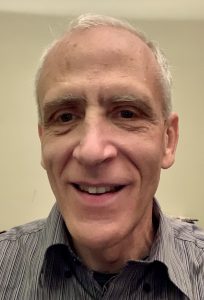
I am a therapist and educator specializing in therapy for psychosis. My primary modality is CBT for psychosis, though I also draw from approaches such as compassion focused therapy, dialogical methods, acceptance and commitment therapy, internal family systems, and approaches developed within the hearing voices network.
I started providing therapy for psychosis in 2003, and then after noticing that training in therapy for psychosis was very rare, I began teaching about this way of working in 2005. Since then I have taught seminars across the US and a bit internationally, at various agencies and universities. A brief resume along with a history of educational events I have offered is available here.
Information about training I can offer, along with consultation sessions, is available here.
For over a decade, I was the chair of the education committee for ISPS-US, and in that capacity I organized many webinars on understanding and treatment approaches for psychosis. Recordings of many of these are freely available on my YouTube channel.
My interest in psychosis began with some of my own experiences as a young man which in my view, and that of many others at the time, crossed over into psychosis (though I was never officially diagnosed, and recovered without treatment.) I’ve written about some of those experiences here and this interview tells a bit more of my story. Following my own journey, several close relatives had somewhat similar experiences that did get them pulled into the mental health system, and unfortunately that system seemed mostly unable to provide real understanding and assistance. All this got me interested in learning how to provide better help, and then in teaching others to do the same.
My therapy practice is in and around Eugene Oregon, at three locations:
- A nonprofit agency that provides outpatient therapy, Center for Family Development
- A private practice at 492 E. 13th in Eugene
- Contract work done at Oregon State Hospital in Junction City
Unfortunately, my practice is full and I rarely take new clients, as more of my time is going into teaching and other activities. I do offer a few tips to people looking for a therapist competent in working with psychosis here.



